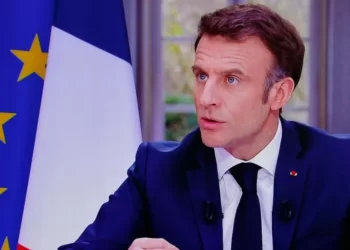In a move defying fierce protests at home and criticism abroad, Georgia’s parliament has overridden a presidential veto of the “foreign agents” legislation.
The veto was rejected by an 84-4 vote in a contentious parliament session.
The vote to bypass the objection of Georgian President, Salome Zourabichvili, whose powers are mostly ceremonial, was widely expected.
The bill that was approved by the parliament earlier this month requires media, nongovernmental organisations and other nonprofit groups to register as “pursuing the interests of a foreign power” if they receive more than 20 percent of their funding from abroad.
They have to do this or face crippling fines.
Zourabichvili, who is increasingly at odds with the governing party, vetoed the bill on May 18, 2024.
She accused the governing party of jeopardising the country’s future and “hindering the path toward becoming a full member of the free and democratic world.”
Now, she has five days to endorse the bill. If she doesn’t do so, the parliament speaker would be able to sign it into law.
The ruling party, Georgian Dream argues that the law is necessary to promote transparency and resist “pseudo-liberal values” fomented by foreigners,
The government says the bill is needed to stem what it deems to be harmful foreign actors trying to destabilise the country
However, many Georgian journalists and activists argue that the bill’s true goal is to stigmatise them and restrict debate in the run-up to parliamentary elections scheduled for October.
Opponents denounce the legislation as “the Russian law” because it resembles measures pushed through by the Kremlin to crack down on independent news media, nonprofits and activists.
According to critics, the measure may have been driven by Moscow to thwart Georgia’s chances of further integrating with the West.
They also said that it could derail the country’s bid to join the European Union and tip it into the Kremlin’s orbit.
The bill has fuelled Western concerns and set off weeks of street protests.
Last week, the United States sanctioned Georgia, implementing a new visa restriction policy in response to the repressive law and crackdowns on protests.
“As a longtime supporter of Georgia and it’s Euro-Atlantic integration, I’m deeply concerned and disappointed by the passage of the foreign agents bill and the rapid political shift taking place in the country, which is at odds with the wishes of the Georgian people,” US Sen. Jeanne Shaheen, a Democrat from New Hampshire, said in a statement introducing the legislation.
EU Expresses Regret Over Georgian Parliament’s Decision
“The European Union deeply regrets that the Georgian Parliament decided to override the President’s veto,” the bloc said in a statement.
It added that the law “goes against EU core principles and values.”
Responding to Tuesday’s vote, Lithuanian Foreign Minister, Gabrielius Landsbergis also said that it marked “a very sad day” for Georgia and the rest of Europe.
“The passing of this law effectively puts Georgia’s accession to the EU on hold, with no benefit for anybody,” he said.
Furthermore, Natalie Sabanadze, Georgia’s former Ambassador to the EU, described the government’s attempt to pass the law, just months before scheduled parliamentary elections, as a “coup d’etat.”
“The Georgian government is clearly siding with the Putinist, anti-liberal forces of the world” Sabanadze told a news agency.
Sabanadze added, “It’s turning into an instrument in the hands of Russia. I cannot speculate. I have no idea whether they’re working on Russia’s instructions, but they certainly are fulfilling their interests.”
READ ALSO: Mahama Sounds Alarm on Ghana’s Economic Challenges





















